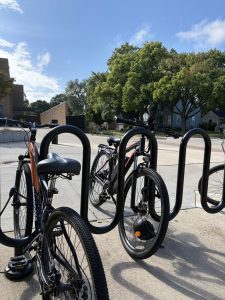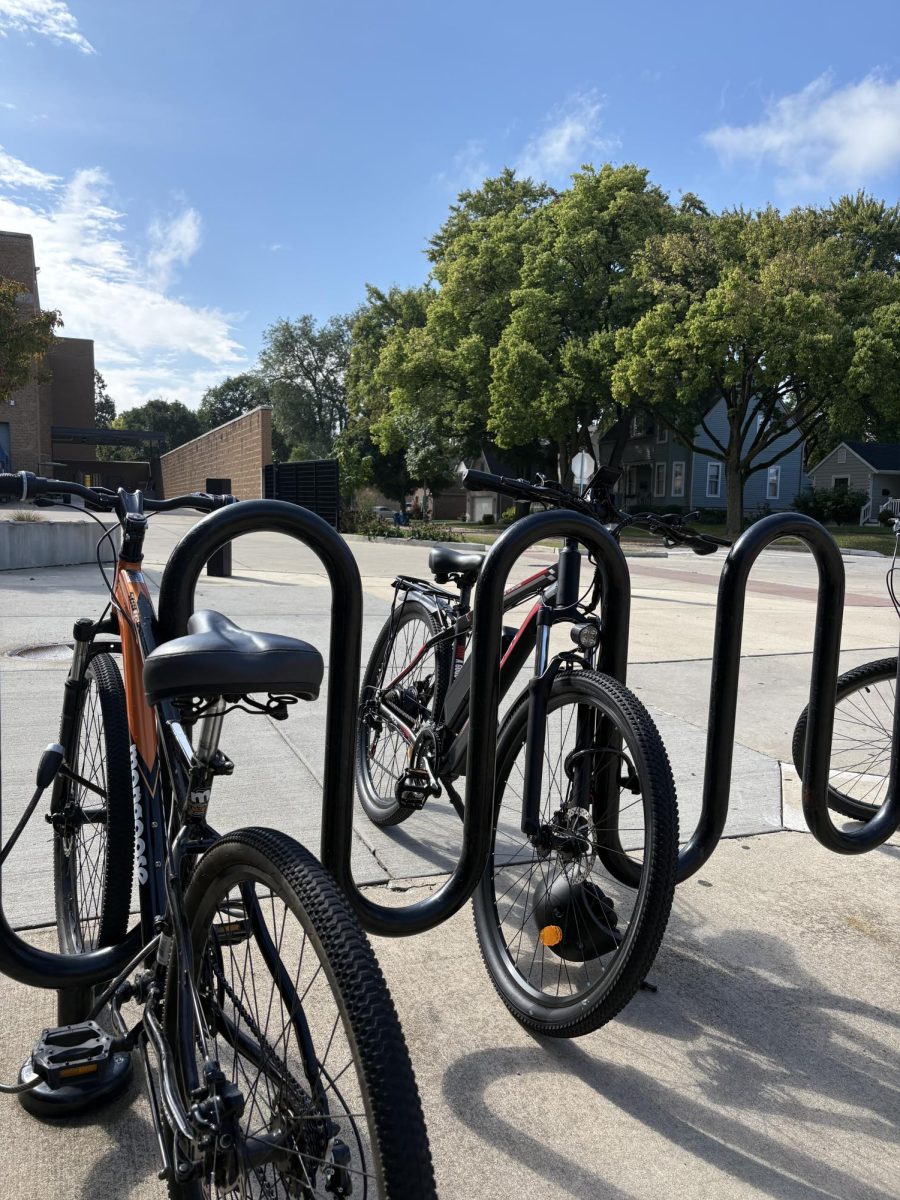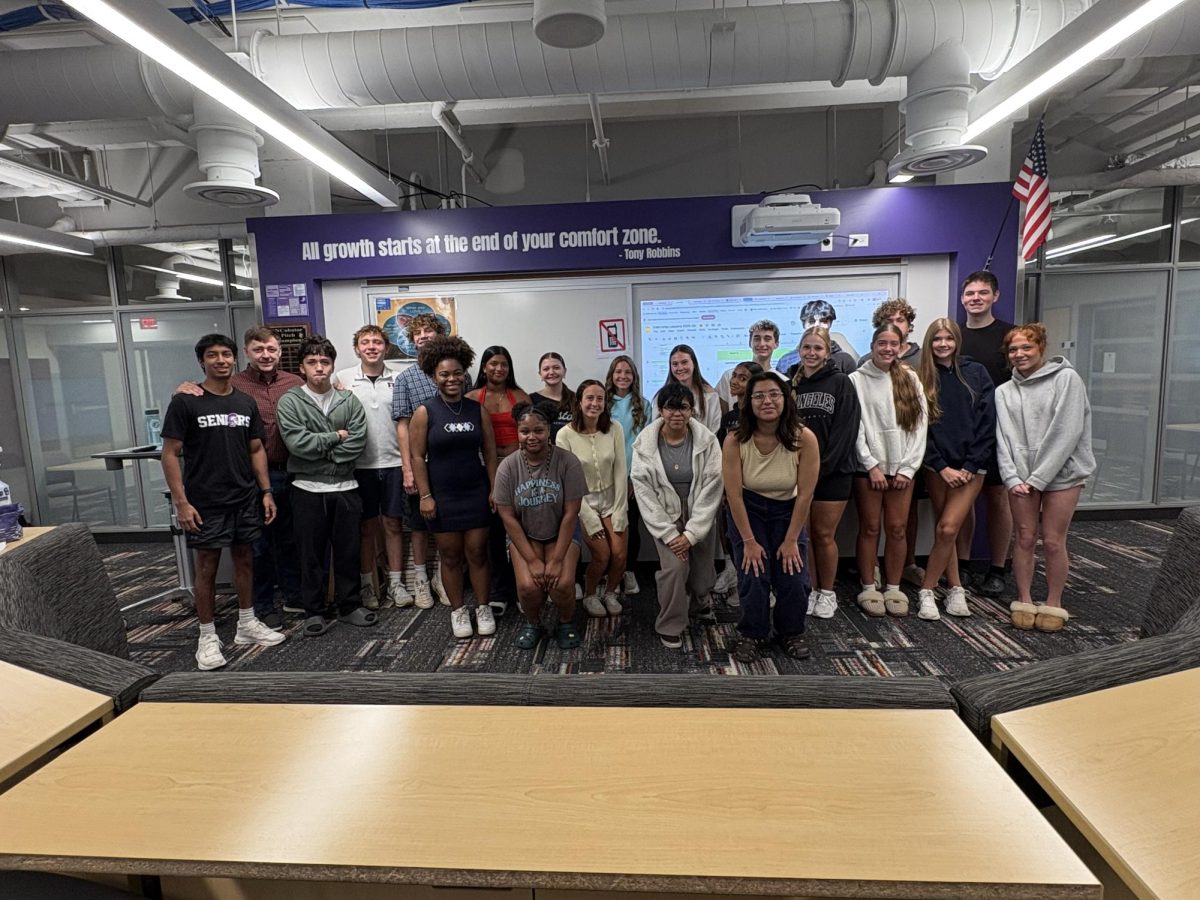Bilingual: Reflecting on benefits and challenges of biligualism
December 13, 2017
As senior Jessica Diaz walks into her house, her abuela, or grandmother is contemplating on what to cook for dinner that evening. Diaz asks, “¿Me puedes hacer pozole por favor?” Diaz would like her grandma to make pozole, a traditional Mexican soup that is one of Diaz’s favorite dishes. As her siblings hear her request, they come rushing to the kitchen saying “Yes abuela! Please make pozole!” This is a typical evening in the Diaz household.
Diaz’s family story is not uncommon in DGN. Her family came to the U.S. in search of a better life, and learned English by immersing themselves in the language and listening to spoken English. As a child, Jessica learned to speak English and Spanish at the same time. Speaking two languages created several important relationships in Diaz’s life.
“Learning two different languages was always something that was important to me. It was something that separated and made me special from other kids my age. I always knew that at school I would speak English and at home, I would speak Spanish and English,” Diaz said. “My grandparents only know Spanish and they are the people who taught me Spanish.”
There are a variety of different ways people can learn to be bilingual. From a very young age, a child can learn a language just from his/her parents. Just by hearing and listening to a language young children are able to comprehend words and understand pronunciation.
English department secretary Maria Georgiou learned to speak Greek from her parents. Later in her childhood, she went to Greek school which led her to learn more about the reading and writing of Greek.
“I think it is extremely important when you have children that you start talking to them[in your native language] even when they are one year old. As soon as you start communicating with them, the earlier the better,” Georgiou said.
The cognitive and educational advantages related to bilingualism
Along with the benefit of knowing more than one language, bilingual students also reap cognitive benefits.
According to the DANA Foundation, a group focused on advanced brain research, the bilingual brain depends on executive functions more heavily than the monolingual brain. Executive functions consist of working memory, mental flexibility and self control. Due to the fact that a bilingual person’s language systems are always working and competing, the person utilizes control mechanisms every time they listen or speak, thus strengthening the control mechanisms.
“Sometimes in class, I’ll think of something such as a saying or a fact for an example in Spanish. At first it was a little hard for me to quickly figure out my thoughts in English, but now I don’t even have to think about switching from Spanish to English or vice versa,” Diaz said.
In a study done by York University in Toronto, bilingual children can have a higher ability to focus on one thing, and then change their response at any given time. This indicates cognitive-ability, which is the ability for someone to perform activities associated with learning and probleming solving.
Freshman Ugne Nalivaikaite was born in Lithuania and moved to U.S. when she was seven years old. Due to this, Nalivaikaite learned to speak Lithuanian first until she was put into school to learn English.
“Knowing two languages can overall train your brain to “flip-flop” different ideas and it grew my brain to be able to learn a lot during a short period of time,” Nalivaikaite said.
A study done by renowned psychologists Ellen Bialystok and Michelle Martin-Rhee found that bilingual children are more successful at separating objects by shape and color when compared to monolingual peers.The study’s conclusions suggests that learning two or more languages can improve the brain’s ability to switch attention constantly and memory.
Being bilingual can also put one at an advantage to learn other languages easily.
“Because I learned so many different ways to pronounce words, it trained me for future learning. I am currently learning French and it is much easier for me to learn French because I have learned a different language with a school before,” Nalivaikaite said.
The challenges associated with being bilingual
Being bilingual has many benefits, but along with that comes along a few disadvantages. For example, once a person starts to grow accustomed to a different country with a different prominent language, their ability to improve their mother tongue can decrease.
“Now that I have lived more of my life here surrounded by English-speaking people than in Lithuania, my ability to expand my Lithuanian vocabulary is decreasing. Knowing that I don’t think I could ever go back to going to Lithuanian school,” Nalivaikaite said.
Senior Kotomi Crabdree learned Japanese from her mother. Crabdree shares this difficulty when she visits Japan.
“When I go back to Japan it’s really hard because everyone expects me to be perfectly fluent but it’s much easier to understand what other people are saying than it is to form my own responses,” Crabdree said.
When someone firsts move to a foreign country, a person can also face difficulty with a the language barrier before they develop fluency.
“The hardest part for me was when I went to school and people would try to talk to me and I would have to smile and nod because I had no idea what they were saying to me. A second challenge was my name. People used to make fun of it. I had to change the pronunciation of my name because people just couldn’t pronounce it,” Nalivaikaite said.
Despite the various factors that bilingual people must juggle, many can agree that the benefits outweigh the difficulty.
“I think it is essential [to learn more than one language]. Especially with the internet, you have a miniature version of the world in your hands. Unless you understand who’s out there, I’m not sure you can communicate efficiently. You’re one of many. I think that’s sometimes difficult for us in the U.S. to understand. Understanding other people’s culture allows us to become better people,” foreign language teacher Joel Kapitaniuk said.

























